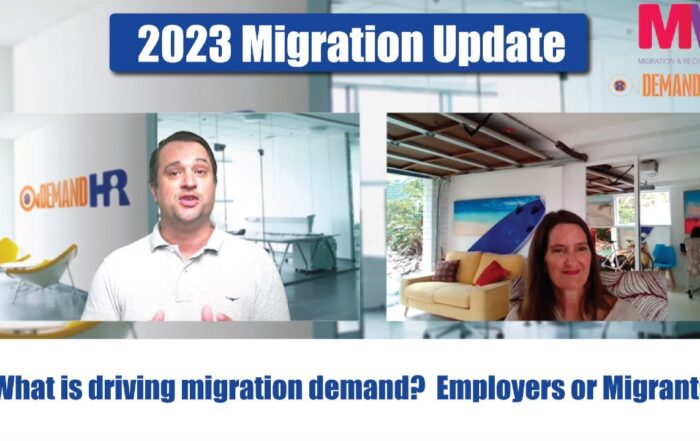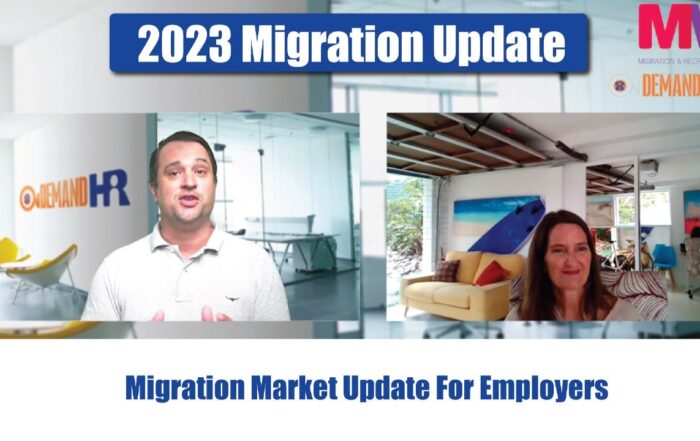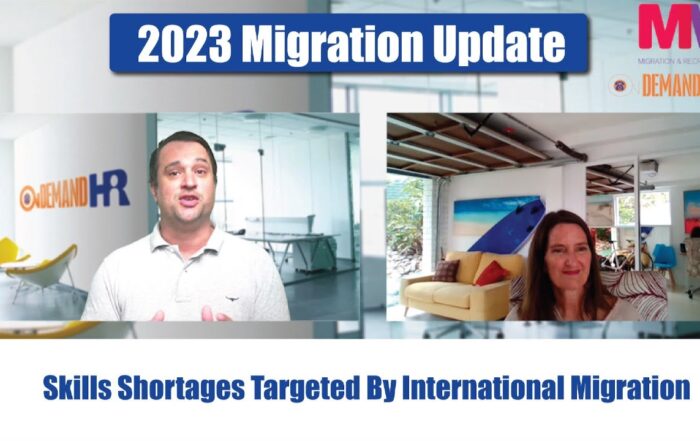Covid & NSW Workers Compensation
NSW workers compensation has had changes which include a presumption of contracting Covid-19 at work for a number of industries. Find out if your business is affected and if you should be concerned.
Please see below for a full transcript of the video.
Share the HR or workplace relations challenge facing your business and one of our experienced consultants will be in touch within 24 hours with a strategic action plan or discover the best strategy yourself by accessing out free online training library.
Transcript
0:01
This flows on to this next part, which is at changes to workers compensation. So what some, essentially this is, what’s essentially occurred in relation to this is that if you work in one of these industries that’s listed on the page there. And if you contract COVID-19,
Sorry about that, I’ll read them out. So the retail industry, the healthcare sector, police and emergency services, firefighters, ambulance officers, educational institutions, the cleaning industry, the construction industry, restaurants, clubs and hotels, disability and aged care facilities, refuges, halfway houses and shelters, passenger transport services, courts and tribunals, correctional or detention centers, places of public entertainment or instruction. So if you work in any of those industries, if you contract COVID-19, the presumption for the purposes of workers comp is that you have contracted at work.
The interesting thing about this is that they say on one hand, the presumption is that if you contract it in these industries, you’ve contracted it at work. But if you look at the very low number of cases we have in Australia, and almost got to say at least 90% of the time, they’re able to contract trace where it came from, then in actual fact, the contract tracing will confirm whether you’ve contracted at work or not, it’s only going to be the 10%. It’s only gonna be the 10%, where it’s unknown, that this will come into play, really, because if it’s unsure, then it will be deemed that you’ve contracted it at work.
But that this this is probably more of a phenomenon if you had sort of what Victoria had last year, 700 cases a day where they might know where 600 are from, that the other 100 might be because there’s so many at once. You don’t know where the other 100 have come from, or it’s under investigation. But when you’ve got small numbers, I think I think certainly those who’ve been following the news in the past couple of months, because it’s been so few cases, they’ve almost been able to pinpoint exactly every single case and where it’s come from.
So, again, this has some basis because yes, there’s a presumption you’ve contracted at work in these industries. But then again, that’s kind of countered by the contract tracing, which is likely to give you an affirmative on this anyway. So if you contract this at a party, let’s say you were in the healthcare sector, but the contract tracing said you contracted it at, you know, at a McDonald’s on Sunday. Well, then, obviously, it’s not a worker’s comp situation in that scenario.
Yes, sir. Well, potentially, yes. Because if you look at workers compensation and how workers compensation typically works, okay. The thing about COVID-19 is that where it’s different from other, I guess, illnesses or injuries is that with COVID-19, there’s there seems to be a result sooner rather than later, you either recover or you die, basically. So that’s kind of how it works is that if you die from it, and if it’s deemed you’ve contracted it at work. Very interesting to see how that, obviously, I don’t wish that on anyone. But be very interesting to see how they treat that, whether that’s whether there’s any employer liability in those situations, typically, you’ve got whether there’s even a, I think it’d be very difficult for safe work to try and prosecute those sort of situations.
But theoretically, if you think about it, on a construction site, if someone falls through a scaffold and dies, or something like that, that could potentially have the ability to have fines or penalties. And, well, whether or not that goes through a worker’s comp process or not. And the reason I mentioned that recover or die before is for as I mentioned that for a reason. And, and it’s because what where I think COVID is different from other sort of illnesses is that there is seems to be some cases where there’s an ongoing, there’s an ongoing, lasting effect of the disease.
So they’re the ones that are likely to get, if you think about a back injury, think about a back injury for a moment, if you’ve got a back injury, a person has a back injury at work, they might have treatment, they might have surgery, but a lot of back injuries that people have at work, they may not recover from. So what that leads to is some sort of whole person impairment claim of where they may receive a lump sum payment for some sort of loss of that body part or movement of that body part may also lead to a negligence claim as part of the worker’s comp process as well.
I think that that’s less likely in the COVID-19 scenario, because in a COVID-19 scenario, more often than not, you recover or you die. That’s that’s the situation. So. So this is this is at the moment, New South Wales workers comp, if you contract in these areas, the presumption is you contracted it at work. So this is more about how they’re treating particular types of claims.
So we don’t have any stats yet on how many of these have been made, how many have progressed to long term liability, because that’s another that’s another very interesting thing is it really and what we’ll probably see, hopefully in the near future is numbers around how many of these cases of COVID-19 that were workers comp based, have gone on beyond a normal flu recovery time. You know have gone on beyond to two to four weeks.
I’ve had, I’ve actually had two clients that have had it in the last year. And both have said to me, one said to me, you know, like she recovered in two weeks, the other said that he recovered in about a week. So be interesting to see that the exact scenario, you’ve said the one with the lasting effects, if there is a lasting respiratory problem, you know, well, well, could that lead to WPI claim? Could that lead to some sort of, you know, some sort of lump sum payment type situation? Could that lead to a negligence situation?
Because it’s at that point when there’s employer kind of risky, like, the flip side as Andrew alluded to is vaccinating, jumping the gun on vaccinations If there’s a side effect of that, then what does that expose?
Well, look, I don’t think it’s on a lot of premiums, to be honest, because I think that the number of people that will have claimed COVID for workers comp will probably be few and far between, but obviously, for any organization that’s got a premium of above 30k, then obviously, you’re in that employer rated bucket, and in which case, it may very well, obviously a case that does get a go beyond that, there could be an industry adjustment on that basis. I mean, the actuarians may very well address the industry scenario based on it. I don’t think there’ll be if I did, it wouldn’t be that great, because, again, I think Australia has the very low case numbers.
Yeah, the two things I’m very interested to see. At the end of this is one, have we had any covid 19 cases where an employee has had long lasting effects and tries to not tries to but but it might very well legitimately tries to seek compensatory things for that.
And, whether anyone who’s vaccinated has the same situation, whether they’ve had any lasting effects of that situation. The other the other, the other factor here, and this is something to not discount. And because we see this in so many other injury claims, is that whether you know COVID-19 situation, like any other injuries may lead to a sort of a bolt on mental health claim.
We see this all the time that and I’m just doing a presentation on this actually, a webinar with my clients and associates earlier this week, that mental health now is the highest number of gross, sorry median. Let me say that again. Mental health,highest average of last time in weeks per claim. So 21 weeks in New South Wales now. And that’s higher than ever even back injuries. That’s correct, hire them back and all of the other injuries you can possibly think of that can happen at work, mental health, now the highest 21, 21 weeks of average lost time per claim. That’s the average that’s five months on average, that the average mental health workers comp claim will go for. And we’re just seeing them and there’s a whole there’s a whole probably another you know, the whole another conversation about New South Wales workers comp that I can I will hold my tongue on that today, but but basically, yeah, you’re seeing pretty significant mental health claims and on the rise as well. So.






